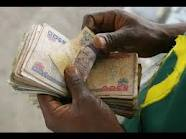In 1986, Nigeria was cash-strapped and could not pay for import; It embarked on import licensing. Foreign exchange rationing was the order of the day. It bred favouritism and there was need to change the system. Western economists came in to advise the country. Their prescription for Nigeria was to adopt the ill-fated Structural Adjustment Programme. They immediately saw the naira as an over valued currency. Then the naira was about the same value with the dollar. Nigeria took the economic suicide pills of structural adjustment with the key point of devaluing the naira. The naira was devalued. The naira was exchanging at N0.658 to the dollar in 1972; N0.658 to the dollar in1974 and in 1985, a year before SAP, the naira was exchanging at N0.894 to the dollar. In1986 when Nigeria on the advice of economists devalued the naira, it was N2.02 to the dollar.
Since then, the naira has suffered persistent devaluation at the detriment of the national economy. By1987, the value of the naira had dropped to N4.02. By 1994, it was exchanging for N22.33 at the official market. CBN official figures showed that in 2004, the naira exchange rate at the official market as at the end of December was N132.86 while it was N138.71 in the bureau de change. In 2005, the exchange rate of the naira to the dollar was N130.29 at the official market and N141.93 in the open market by the end of that year. CBN data equally showed that in 2006, the exchange rate of the naira firmed up to an average of N128.29 in the official market and N129.32 in the open market. In 2008, it lost some value to exchange for N126.48 officially and N137.65 in the open market. In 2009, the naira lost more value to the dollar to exchange for N153.48 in the open market. This trend in the loss of value in the nation=s currency is expected to continue and would, by IMF projection, exchange for N202.7 to the dollar in the next four years.
When the CBN and the military government then were presented with SAP, the catch was that it would lead to Nigeria earning more foreign exchange from non-oil export. The devaluation policy, Nigerians were told, will make Nigeria export cheaper, encourage direct foreign investment, and boost government revenue. Policymakers bought the idea line hook and sinker.
They did not take into account that devaluation favour countries that have large manufacturing bases. Based on Western economic theory of elasticity of demand and supply, a change in price brings about a considerable change in the volume demanded. Yes, for products that the producer has control over its supply, price elasticity holds, But for commodities and primary produce which prices are determined by the vagaries of the international market, the theory breaks down.
Nigeria produces primary products such as cocoa, rubber, groundnut etc and now oil. The prices of these commodities are not determined by whatever Nigeria does. They are determined essentially by international market price. The volume of oil Nigeria is to supply to the international market is determined by OPEC and the price ruling by the international oil market. It is not what Nigerian producers want to sell oil or any of the other commodities that they get. The demand for Nigerian products is not influenced by the prices that Nigerian producers quote for them, but simply by what the international commodities exchanges quote as prices.
This is not the case with cars and other manufactured goods. In the case of cars and other manufactured goods as it is in the West where most of the economic theories emanated from, it is the manufacturer after calculating his cost, that fixes the margin he wants for his products. In these economies, adjustment of currency prices affect in a great measure, the amount of goods they can sell to one another. If a particular currency is valued higher than the other, the cost of importing their product becomes higher, so they sell less.
Pricing the naira far lower than other currencies at this point in time is a great disservice to the nation. Nigeria is not at the moment a productive economy, it is essentially a consuming economy where anything under the sun is imported. Of what benefit is it to keep the naira down? The unemployment situation in the country is because the naira has been wrongly priced over the years. Redenomination of the naira will deflate prices and realign the value of the local currency with the dollar and other foreign currencies.
This will build a new confidence in the economy. It will enable authorities to effectively manage general price level and the probable increase in external confidence in the nation’s economy. Redenomination of the naira could boost the Nigerian capital market. The signal of more effective management of general price level makes investors to anticipate lower and stable inflation. Thus, the general level of interest rate, the bane of the economy, is expected to fall. Such fall in interest rate will in turn boost investment in the Nigerian economy. Also, the rise in external confidence in the Nigerian economy will attract more foreign direct investment into the country with a positive impact on the capital market.
If the president is serious about letting his transformation agenda make meaning to Nigerians, he should immediately embark on the realignment of the naira with other foreign currencies.
1972 0.658
1973 0.658
1974 0.63
1975 0.616
1976 0.62
1977 0.647
1978 0.606
1979 0.596
1980 0.550
1981 0.61
1982 0.673
1983 0.724
1984 0.765
1985 0.894
1986 2.02
1987 4.02
1988 4.54
1989 7.39
1990 7.39
1991 8.04
1992 9.91
1993 17.30
1994 22.33
1995 21.89
1996 21.89
1997 21.89
1998 21.89
1999 21.89
2000 85.98
2001 99-106
2002 109-113
2003 114-127
2004 127-130
2005 132-136
2006 128.50-131.80
2007 120-125
2008 115.50-120
2009 145-171

